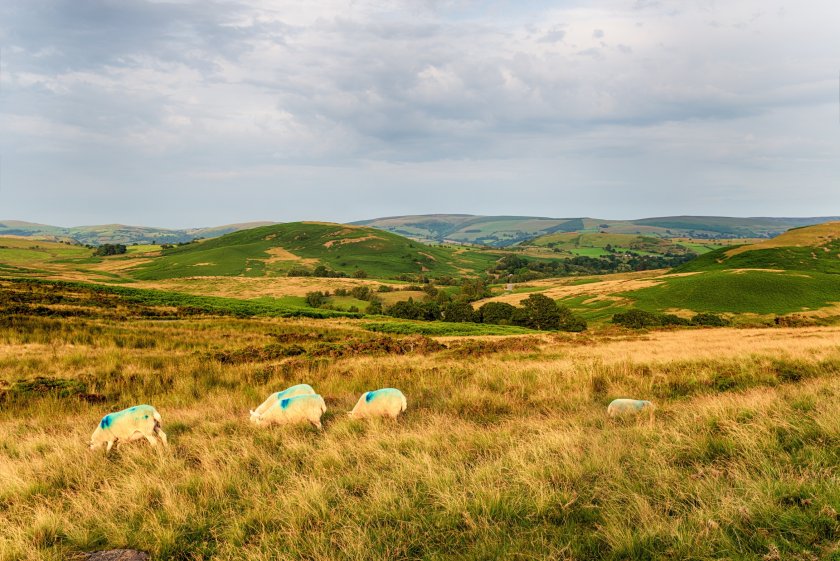
NFU Cymru has expressed 'profound concerns' for the future viability of farming in Less Favoured Areas in light of Welsh government’s scheme proposals.
The concerns follow the release of Welsh Farm Business Incomes for 2022-2023, which showed an income fall of 37% across Less Favoured Areas (LFA) cattle and sheep farms.
Sheep farmers in Wales' Severely Disadvantaged Areas (SDA) saw a 45 percent reduction in income.
Of all the sectors in Wales, LFA cattle and sheep farms make up both the largest proportion of farms in Wales (66%) and cover the largest land area (73%).
At the recent NFU Cymru LFA Board meeting, hill farmers from across Wales considered Welsh government’s ‘Sustainable Farming Scheme – Keeping Farmers Farming’ consultation.
This sets out how the Basic Payment Scheme is to be fully phased out by 2029 and replaced by Wales' post-Brexit agricultural scheme, the Sustainable Farming Scheme, from 2025.
Farmers who wish to participate will receive a Universal Baseline Payment in return for delivering 17 Universal Actions and two scheme rules.
The rules include the requirement to have at least 10% tree cover and 10% of the farm managed as habitat. A time limited stability payment which reduces to zero by 2030 is also proposed.
Commenting after the meeting, NFU Cymru LFA Board Chair, Kath Whitrow said farmers were 'highly concerned' about the latest Welsh government proposals.
"Farmers are worried about the practicalities of delivering the requirements of the scheme," she noted.
"We are also very concerned that Welsh government now proposes to calculate the Universal Baseline Payment on the basis of costs incurred, income foregone calculations.
"This, together with the fact that Welsh government currently proposes a stability payment that is time limited, means that the scheme will bring no meaningful income onto farms to replace the BPS from 2030.
“The impacts such a move would have on farm businesses and the supply chain as well as our rural communities cannot be overstated."
Welsh Farm Business Incomes for 2022-2023 show a drop in income across LFA cattle and sheep farms with SDA sheep farming experiencing an even bigger reduction in income.
There is a double whammy for over 3,000 farmers with common land which is currently included as eligible area for the purposes of the Basic Payment Scheme (BPS) - in many cases, making up over 50% of the claimable area.
Under current Welsh government proposals, common land will not attract the Universal Baseline Payment.
Support for common land is expected to be delivered by collaborative agreements which will be phased in during the transition period between 2025 and 2029, subject to budget availability.
Ms Whitrow said the Welsh government’s current proposals ignored the fact that despite significant investment in facilitation through Commons Development Officers, Glastir Common Agreements were only ever secured on 65% of common land.
She said: "It is clear that collaborative agreements will not be possible in all instances and farmers in this position face the prospect of receiving no support on their common land.
"It is essential that Welsh government addresses these issues before the transition to the new scheme begins.”
